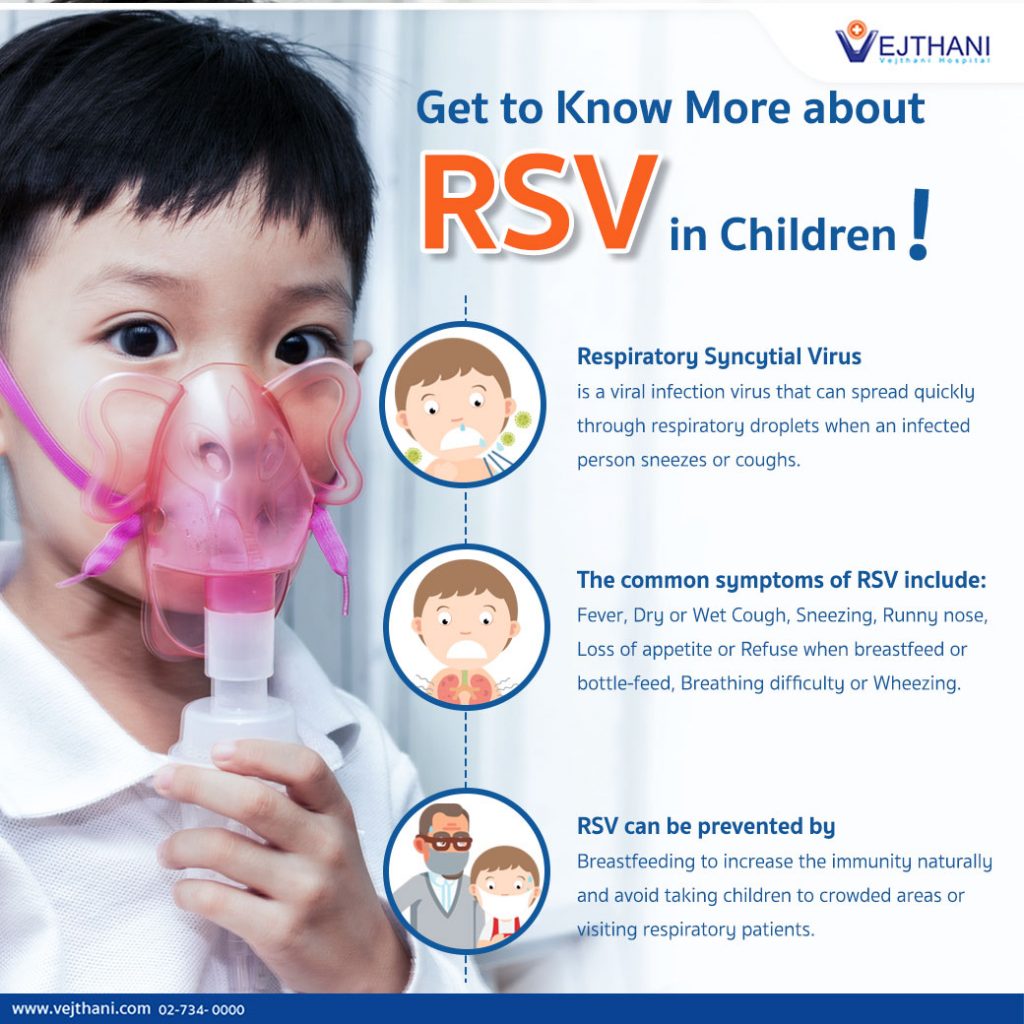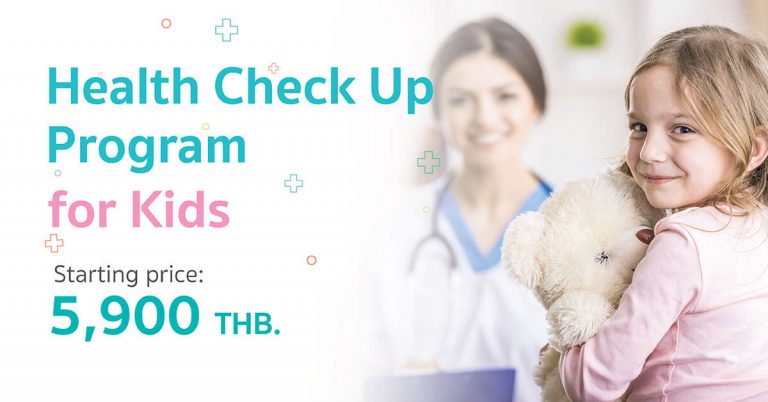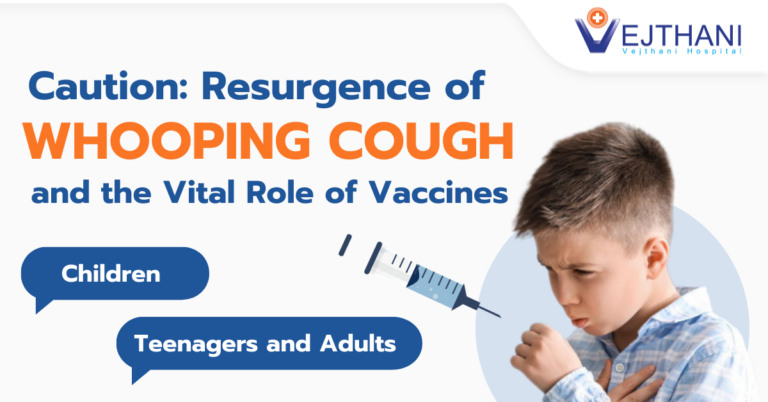

Respiratory Syncytial Virus or RSV in short, is classified as a Pneumovirus which is a viral infection virus that can spread quickly through respiratory droplets when an infected person sneezes or coughs. The RSV can cause infection in the lungs and respiratory tract, especially in infants and young children because children’s lungs are not adequately developed as well as their immune systems are not as efficient as adults so they can get infected more easily. Children are most likely to be infected by RSV when they reach their 2nd birthday.
However, adults are also susceptible to RSV infection. Basically, the RSV epidemic in Thailand occurs during the rainy season which typically lasts from August until November.
The common symptoms of RSV include:
- Fever
- Dry or Wet Cough
- Sneezing
- Runny nose
- Loss of appetite or Refuse when breastfeed or bottle-feed
- Breathing difficulty or Wheezing (in severe cases)
Typically, the symptoms will show within 4 – 6 days after the virus infection. In addition, the infection and inflammation in the respiratory tract and lungs can lead to complications such as Laryngitis, Bronchitis, Bronchiolitis, and Pneumonia in severe cases. Thus, people who have severe symptoms may need to be admitted to the hospital to receive special medical treatment, such as a bronchodilator to relax the lung’s muscle and widen the airway. However, most mild cases do not require treatment and will naturally clear up on their own within 5 – 7 days. In moderate cases, the patients are infected in the lower respiratory tract or have a chronic cough with mucus. The patients may need percussion and postural drainage to drain mucus out of the respiratory tract, and the symptoms may take around 2 – 3 weeks until it gets better.
Currently, there is no vaccination for RSV. Therefore, prevention is the best option for everyone. We can prevent RSV infection by breastfeeding to increase the immunity naturally and avoid taking children to crowded areas or visiting respiratory patients. We can also prevent the spread of the virus by separating the infected patient from others, and by frequently washing hands with soap or alcohol-based hand sanitizer.
- Readers Rating
- Rated 4.1 stars
4.1 / 5 ( Reviewers) - Excellent
- Your Rating



























